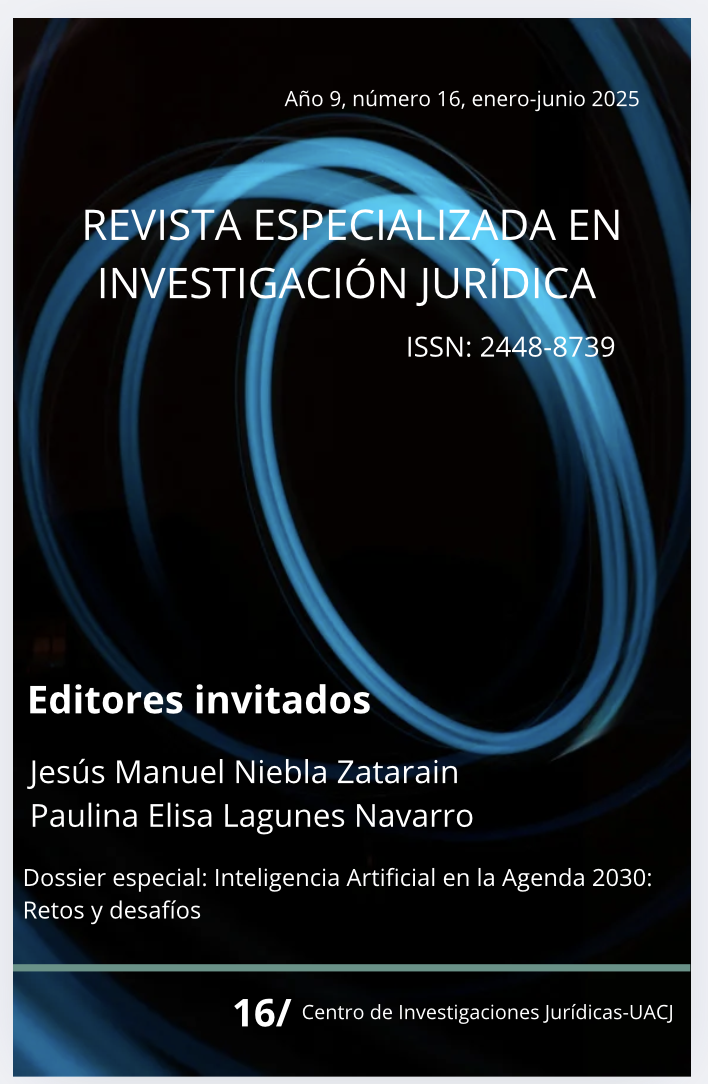Post-pandemic family trial: The implementation of technology as a guarantee of the right of access to justice in the state of Sinaloa, Mexico
DOI:
https://doi.org/10.20983/reij.2025.1.3Keywords:
access, digital, family members, justice, trialsAbstract
This research analyzes the measures taken by family courts in Sinaloa during and after the pandemic to determine whether they allowed the right of access to justice contained in our Constitution to be realized. This is based on a systematic study of the legal system with the aim of demonstrating its insufficiency, starting from a descriptive approach that makes it possible to identify that these measures maintained the deficiencies that the justice system already had. As a result, we found that during the pandemic in family trials in Sinaloa the digitalization of the process was attempted without fully achieving it, leaving aside the possibility of seeking a simplification of the processes. In conclusion, while it is true that what has been done is a necessary step, it has remained incomplete, and the aspect that strives to not only digitalize the processes but also to seek their simplification should be explored to facilitate the right of access to justice from the perspective that our highest court has interpreted it.
Downloads
References
Argés, J. (2018). El acceso a la justicia concebido como derecho humano imperativo (ius cogens). Derecho Global. Estudios sobre Derecho y Justicia, 73-92.
Arley, A. M. (2022). Principios para un sistema de justicia digital eficaz en México, a través de la reforma al artículo 17 constitucional. Boletín Mexicano de Derecho Comparado, 164, 1-36.
Bernales, G. (2019). El acceso a la justicia en el sistema interamericano de protección de los derechos humanos. Revista Ius et Praxis, 277-306.
Caso Maritza Urrutia vs. Guatemala. (2003, 27 de noviembre). Corte Interamericana de Derechos Humanos.
Constitución Política de los Estados Unidos Mexicanos. (s. f.).
Gómez Lara, C. (2005). Derecho procesal civil. Oxford University Press.
Güitron, J. (2012). Fundamentos jurídicos para establecer en México los juicios orales en derecho familiar. En M. A. Magallón, Juicios orales en materia familiar (pp. 75-116). iij-unam.
Ibarra, A. y Treviño, S. (2019). Constitución y familia en México. En N. Espejo Yaksic y A. M. Ibarra, La constitucionalización del derecho de familia (pp. 351-404). Suprema Corte de Justicia de la Nación.
James, J. (2021). Taking a Shot: Access to Justice, Judging and Ecourt. Family Court Review, 59(2), 278-293.
Laise, L. (2020). ¿Puede la expansión del derecho al acceso a la justicia potenciar al activismo judicial? Anuario Iberoamericano de Justicia Constitucional, 1(24), 147-173.
López, E. y Fonseca, R. (2017). Juicios orales en materia familiar. Iure Editores.
Marianello, P. (2012). El activismo judicial: una herramienta de protección constitucional. Pensar en Derecho, 121-165.
Medina, E. (2022). Hacia una teoría sobre la e-justice o justicia digital: instrucciones para armar. Cuestiones Constitucionales, 46, 177-212.
Meredith, D. y McCurdy, M. (2021). Justice Reimagined: Challenges and Opportunities with Implementing Virtual Courts. Current Issues in Criminal Justice, 33(1), 94-110.
Nogueira, H. (2012). El debido proceso en la Constitución y el sistema interamericano. Librotecnia.
Ovalle, J. (2016). Teoría general del proceso. Oxford University Press.
Rhode, D. (2013). Access to Justice: An Agenda for Legal Education and Research. Journal of Legal Education, 62(4), 531-550.
Sourdin, T., Li, B. y Mcnamara, D. M. (2020). Court Innovations and Access to Justice in Times of Crisis. Health, Policy and Technology, 1-7.
Suprema Corte de Justicia de la Nación. (2005). ¿Qué es el Poder Judicial de la Federación? scjn.
Susskind, R. (2019). Online Courts and the Future of Justice. Oxford.
Zagrebelsky, G. (2011). El derecho dúctil, ley, derechos, justicia. Trotta.
Downloads
Published
Issue
Section
License
Copyright (c) 2024 Christian Lizárraga Félix, Pablo Alfonso Aguilar Calderón

This work is licensed under a Creative Commons Attribution-NonCommercial-ShareAlike 4.0 International License.
El titular de los derechos de explotación de los contenidos de la Revista Especializada en Investigación Jurídica es el Autor o Autora
El licenciamiento bajo el cual se publican los contenidos es Atribución-NoComercial-CompartirIgual 4.0 Internacional (CC BY-NC-SA 4.0) por lo que se autoriza compartir, copiar y redistribuir el material en cualquier medio y formato, adaptar, remezclar, transformar y construir a partir del material para cualquier propósito, siempre y cuando no sea con fines comerciales y se cite al autor(es) original y a la fuente, proporcione la liga a la licencia Creative Commons e indique claramente si se hicieron cambios a la obra y especifique cuales fueron dichos cambios. Para más información consultar el apartado de Política de Acceso Abierto de la revista.

















